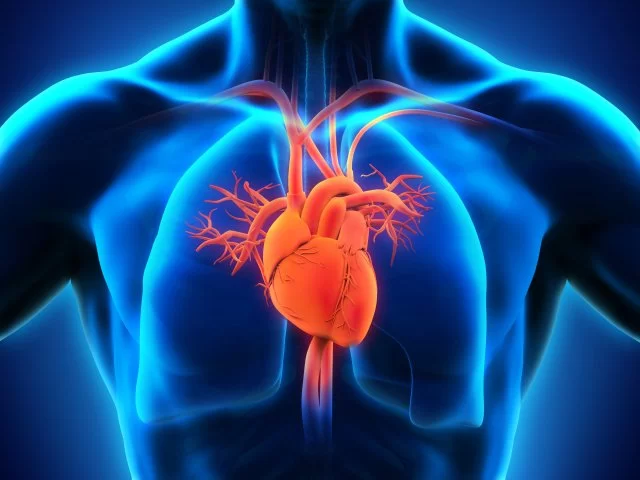How Heart Disease Affects Your Overall Quality of Life: Impact and Solutions
Heart disease is more than just a physical health condition. It can significantly impact a person’s quality of life, affecting not only their physical health but also their mental and emotional well-being. From the limitations it imposes on daily activities to the stress it creates in both the patient and their loved ones, understanding the far-reaching effects of heart disease is crucial. In this article, we’ll delve into how heart disease affects overall quality of life, share real-life stories, and discuss practical solutions to help individuals manage their health and live fuller lives.

The Physical Impact of Heart Disease
The most obvious effects of heart disease are physical, as the condition can directly impair the heart’s ability to pump blood efficiently. As the heart weakens, individuals may experience several physical symptoms that hinder their day-to-day activities:
- Fatigue: One of the most common effects of heart disease is fatigue. When the heart is not pumping effectively, it can lead to reduced oxygen flow throughout the body, causing feelings of tiredness and weakness.
- Shortness of Breath: With heart disease, especially conditions like heart failure or coronary artery disease, individuals may find it harder to catch their breath, even during mild activities like walking or climbing stairs.
- Swelling: Fluid retention, especially in the legs, feet, or abdomen, is another common symptom of heart disease. This occurs when the heart is unable to pump blood effectively, causing fluid to build up in the body.
- Chest Pain: For individuals with coronary artery disease or angina, chest pain or discomfort can occur, especially during physical exertion or stress.
These physical symptoms can create significant limitations on a person’s ability to carry out daily tasks. Whether it’s struggling to walk without feeling winded or being unable to enjoy hobbies or physical activities, the physical effects of heart disease can make life feel less enjoyable and more restricted.
Cardiac Solutions
cardiac solutions
5651 W Talavi Blvd, Glendale, AZ 85306, USA

The Emotional and Psychological Toll of Heart Disease
Beyond the physical limitations, heart disease also takes a significant emotional toll. The diagnosis of heart disease can be overwhelming, often leading to feelings of fear, anxiety, and depression. For many, the uncertainty about the future and the constant worry about heart health can be just as debilitating as the physical symptoms. Common emotional and psychological effects include:
- Anxiety: Worrying about the possibility of heart attacks, strokes, or other complications can lead to heightened anxiety. This constant fear can affect daily life, causing insomnia or avoidance of activities that were once enjoyed.
- Depression: The limitations and chronic nature of heart disease often lead to feelings of sadness or hopelessness. Many people with heart disease report feeling less optimistic about the future and more withdrawn from social activities.
- Stress: Managing heart disease often involves constant medical appointments, lifestyle changes, and medication management. The pressure of adapting to these new routines can create significant stress for individuals and their families.
The emotional toll of heart disease is often underestimated. Mental health struggles can also complicate heart disease, as stress and depression can lead to behaviors that further harm the heart, such as poor diet choices, lack of exercise, or smoking. It’s important for individuals with heart disease to address not only the physical aspects of the condition but also the mental and emotional challenges they face.
Real-Life Example: Coping with Heart Disease
Take the story of Sarah, a 55-year-old woman diagnosed with heart disease five years ago. Initially, she was overwhelmed by the diagnosis, unsure of how her life would change. As her condition progressed, Sarah began to experience extreme fatigue and shortness of breath, which kept her from enjoying her usual activities like gardening and hiking. She also felt anxious and stressed about her future, leading to occasional depressive episodes.
With the help of her doctor and a support group, Sarah learned how to manage both the physical and emotional aspects of heart disease. She incorporated daily walks into her routine to improve her energy levels and found solace in talking to others who understood her struggles. Sarah also sought therapy to address her anxiety and depression, learning coping techniques to reduce stress. Today, while heart disease is still part of her life, Sarah feels empowered and in control of her health.
The Social Impact: Relationships and Activities
Heart disease can also affect an individual’s social life and relationships. The limitations caused by the physical and emotional symptoms can lead to withdrawal from social events, family gatherings, and activities that once brought joy. Many individuals with heart disease find it difficult to keep up with friends or participate in group activities, leading to isolation and feelings of loneliness.
Moreover, heart disease can place a strain on family relationships. Caregivers, often family members, may experience stress, fatigue, and emotional strain as they help manage the individual’s health. This role reversal can be challenging, as caregivers juggle their own lives while ensuring their loved one receives proper care and attention.
Managing Heart Disease for a Better Quality of Life
While heart disease can have a profound impact on quality of life, there are several steps individuals can take to manage the condition and improve their well-being:
- Regular Exercise: Engaging in physical activity, such as walking, swimming, or cycling, can improve heart function, increase energy, and reduce stress. Exercise also helps manage weight and blood pressure, both of which are important for heart disease management.
- Healthy Diet: A balanced, heart-healthy diet rich in fruits, vegetables, whole grains, and lean proteins can improve overall health and reduce the strain on the heart. Reducing sodium and unhealthy fats is crucial for managing blood pressure and cholesterol levels.
- Mental Health Support: Seeking professional help for anxiety or depression can significantly improve emotional well-being. Support groups, counseling, or therapy can help individuals cope with the emotional challenges of living with heart disease.
- Medication Adherence: Following a prescribed medication regimen is essential for managing heart disease effectively. Medication can help control blood pressure, cholesterol, and other risk factors that contribute to heart disease progression.
- Stress Management: Learning relaxation techniques such as meditation, deep breathing, or yoga can help manage stress and improve overall health. Reducing stress is essential for both heart health and mental well-being.
The Path Forward: A Balanced Approach to Heart Health
Heart disease is a life-changing condition that affects much more than just the heart. Its impact extends into every aspect of a person’s life, from physical limitations to emotional struggles and social withdrawal. However, by taking proactive steps and seeking the right support, individuals can manage the condition and significantly improve their quality of life. With the right mindset and tools, it’s possible to live well with heart disease and enjoy a fulfilling, active life.






















Deborah Heart and Lung Center
deborah heart and lung center
200 Trenton Rd, Browns Mills, NJ 08015, USA